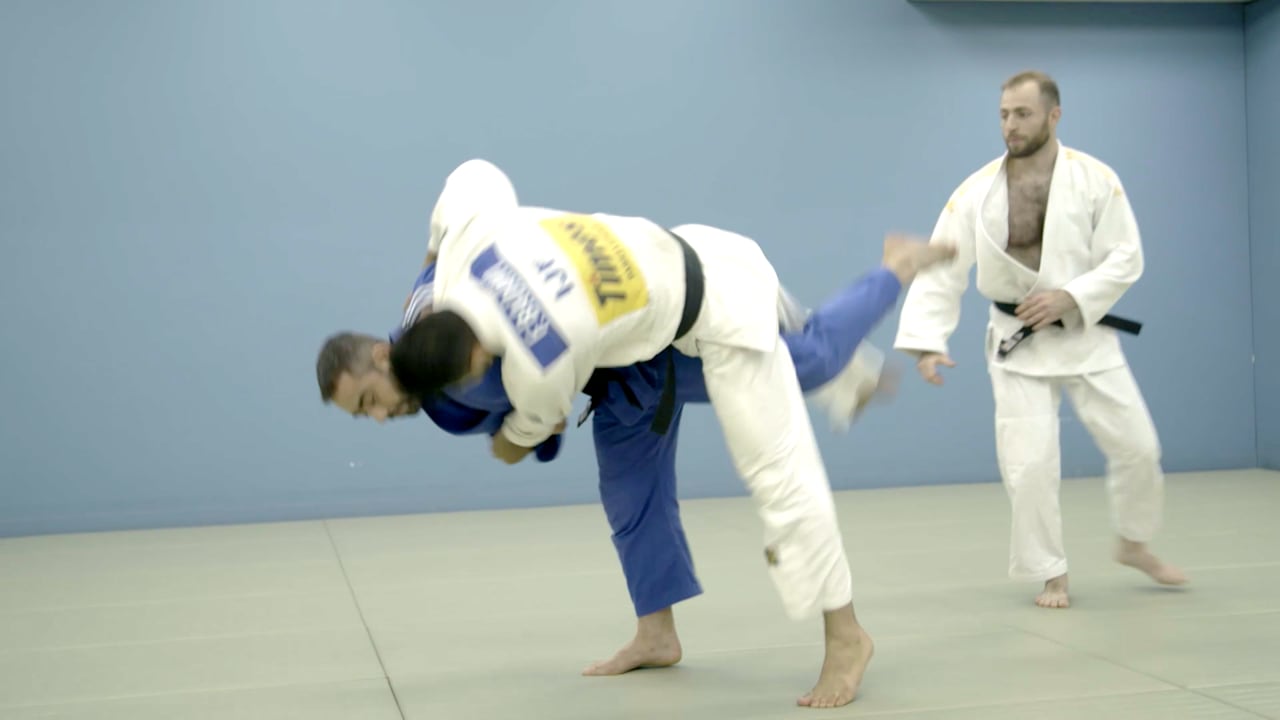
For IOC Refugee Athlete Scholarship holder and Olympic Games hopeful Sanda Aldass, escaping Syria for Europe meant leaving her family – her husband and young son – behind.
But they weren't all that she left in Syria. Her arrival in the Netherlands also nearly spelled the end of her judo career.
Upon arriving in the Netherlands in 2015, the judoka spent an initial nine months in a refugee camp. For six months, she was separated from her family – husband and coach Fadi Darvish and their son, before they too joined her.
But in the refugee camp, there was no place for her to practise judo, leaving Aldass to do simple running exercises to keep her spirits up.
"Sport is my life. I did it for a long time. It's literally all my life, not [just] a part of my life," she explains.
"It's [been my life since I was] six, seven, eight [years old]. I started doing judo since I was seven, and then after that it became all my life."
Eventually, Aldass and family were resettled to a new home, where new challenges awaited – and judo remained on the back-burner.
Finding support from the IJF
Aldass fell pregnant with the couple's second child, while Darwish began looking to see if he could receive his Dutch judo coaching license.
Things were difficult. "When we came here, we couldn't get that help to start judo," Aldass recalls.
"We didn't have that much support here in 2018. We tried to start our sport here, but we couldn't get that much help or support until 2019."
That was the year the International Judo Federation (IJF) invited both Aldass and Darwish into their refugee athlete programme.
Says Aldass: "The competition manager from the International [Judo] Federation got in contact with my coach and she told him that we can join the International Federation's support program – this is how we started it."
As part of the IJF's refugee team, she competed at the 2019 World Championships.
"This situation also changed my life because give me a possibility to be able to be myself. And when I came here, to [judo] it all over again, to start again with doing judo is just something amazing.
"It was so difficult to start everything from all over again since we came here, but the sport gave us a big motivation."
Respect for refugees
While negative perceptions of refugees are an issue for many who escape their countries, Aldass says she has not been subject to any negativity surrounding her refugee status.
And, she adds, her sport has given her an additional advantage. "People here in this country [Netherlands] respect refugees so much," she says.
"But to have a refugee who would maybe participate in the Olympic Games, everyone will look to you differently. Everyone will salute you; [they] would be happy to know you.
"You can fit more into society, not being looked (at) only as refugees, you know, because in every country you have people who would support you and (people who would) look at you in a terrible way.
"Most people love us. We are surrounded by good, nice people now. It gives us a big motivation to to achieve a high goal."
That goal is to compete at the Olympic Games. "We're training two times a day here, and the coach has a specific programme for us," Aldass shares.
Refugee Olympic Team gave hope to millions of Refugees in the world
An honour
The IOC Refugee Olympic Team is due to participate at an Olympic Games for the second time at Tokyo 2020 after its successful – and heartwarming – debut at Rio 2016.
This time, there are expected to be more than double the 10 athletes who represented the team in Rio.
"It (would be) a dream coming true (to be in the Olympic Games)," Aldass says. "You know, I cannot participate for my country. I also cannot participate for the Netherlands. (So) then I would have a huge problem."
What would it mean to be one of the athletes carrying the hopes of the world's refugees on their shoulders?
"It's hard to explain. I'm so honoured and so glad that I'm representing the refugees all over the world. All the time refugees have special (difficult) conditions and to be representing them, it's more than a huge, big honour for me.
"I'm so glad that the IOC and the International Federation have solved this problem, because now we can play for the [IOC] Refugee Olympic Team itself and to follow our dreams.
"You cannot stop (just) because we cannot we don't have a country to represent at the Olympics. With this huge step and the we can be a part of the Olympics itself, that is something great."
And her family – now with three children – can't wait either.
Speaking last year, Aldass said: "My kids are like, ‘Mum, you have to go to the Olympics’," she said.
"The goal for the whole family is reaching the Olympics."






